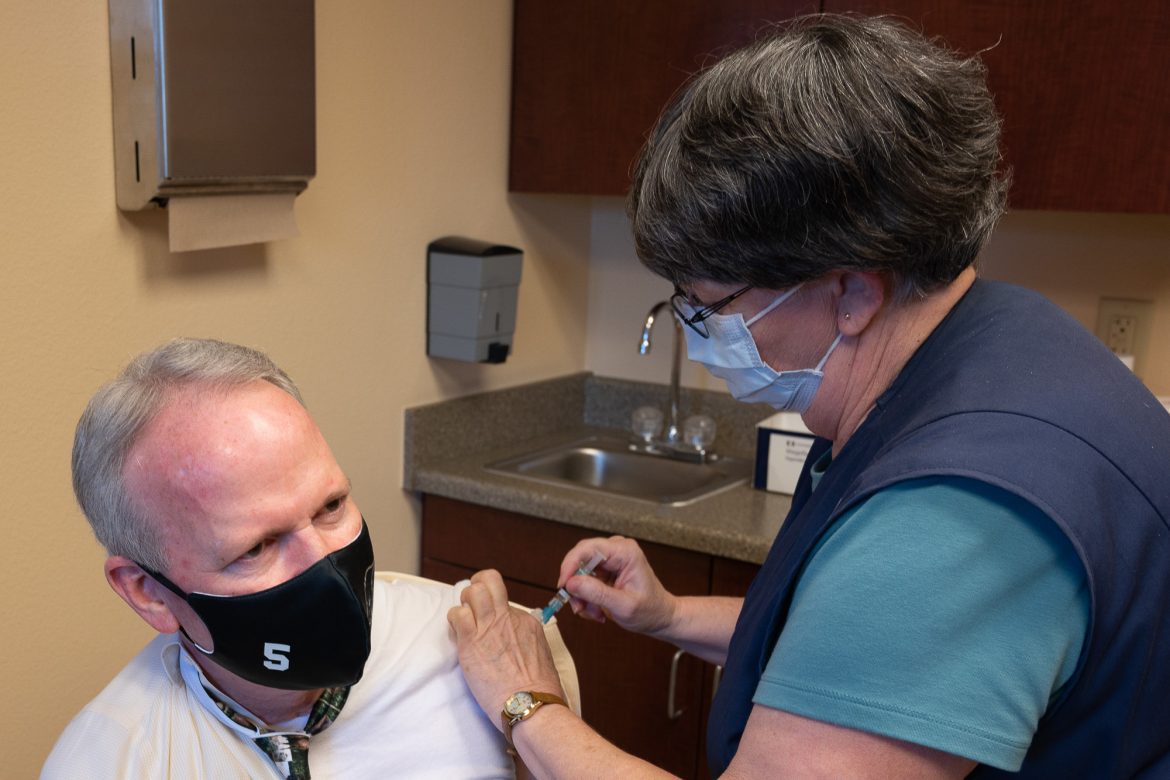Although the Centers for Disease Control (CDC) updated COVID-19 testing recommendations on Sept. 18, Harding has not decided to update University testing protocol accordingly.
The CDC announced that individuals who are in close contact with a person known to have COVID-19 should receive a test regardless of showing symptoms, reversing its previous guidelines, which said that close contacts without symptoms did not necessarily need testing. The CDC also said Sept. 30 that regular serial testing and entry testing on college campuses could lessen COVID-19 circulation, although the agency did not proceed to recommend such testing strategies.
Dean of Students Zach Neal said close contacts at Harding must quarantine for 14 days regardless of a positive or negative test result due to the incubation period of the coronavirus. Although the number of students being tested has increased due to more students submitting COVID-19 screening forms, there are currently no circumstances in which Harding would require students to test, though Student Health Services (SHS) is encouraging students with symptoms to do so, Neal said.
“[Harding’s taskforce] may very well update that approach as CDC guidelines are saying that it may be a good idea to go ahead and test as a close contact, because if you do test positive then that will increase the number of close contacts with the goal of removing that number of people from the general population for a while so that we can mitigate risks,” Neal said.
Dr. Marty Spears, the University’s Provost and Chief Academic Officer, said students may not be required to undergo mandatory testing because close contacts would still need to quarantine for two weeks. Due to chances of false negatives, testing negative does not guarantee that one is not infected, Spears said.
“Even if you test negative for COVID-19 or feel healthy, you should stay home (quarantine) since symptoms may appear two to 14 days after exposure to the virus,” the CDC said in its guidelines.
The CDC also said some individuals who have COVID-19 are asymptomatic, meaning that they would not show any symptoms of the coronavirus even if they were infected.
In a Sept. 30, 2020, Harvard Health Publishing article titled, “Which test is best for COVID-19?,” Dr. Robert H. Shmerling said there are two kinds of tests for active infections: molecular tests and antigen testing. Molecular tests are conducted by taking nasal swabs, throat swabs, saliva or other bodily fluids. Shmerling cited a report done by The BMJ which said that false negatives for molecular tests are as low as 2% and as high as 37%. As for antigen tests, which involve nasal or throat swabs, false negative result reports are as high as 50%, Shmerling said.
Harding officials have chosen to administer PCR tests, a kind of molecular test. As of noon on Oct. 7, SHS had administered 332 tests, and a total of 93 positive COVID-19 cases have been reported on campus. Also as of Oct. 7, 173 people were quarantining.
According to Neal, symptomatic students could leave quarantine early if they test negative twice.
“[If] it’s been four, five [or] six days between the two tests, and they still remain negative, then it is fair to say that they are undergoing symptoms that just happen to be similar,” Neal said.
Along with COVID-19, the flu could make the upcoming months harder on a person’s health and the nation’s healthcare system, according to Dr. MaRanda Herring, associate professor of pharmacy practice. She said the danger of a combination of COVID-19 and the flu was currently unknown.
The CDC recommends that people six months or older get flu vaccines, saying that the vaccine would reduce flu risks and help preserve health care resources.
“In a setting like Harding, where you have students who are living and learning close together, it’s important that we are all vaccinated to protect others,” Herring said. “So, my opinion is that requiring students to be vaccinated for the flu would be similar to requiring students to wear a mask.”
Mary Darden, director of SHS, said Harding was encouraging students to receive vaccines; however, she has not heard any considerations from the University to require students to get vaccines. The first round of vaccines came Oct. 1; however, they were used up by the next day. Darden said the next batch of vaccines will arrive sometime later in October.
Harding faculty and staff can get flu vaccines for free through their Harding insurance, but students have to pay $20 to be vaccinated, Darden said. Herring said students can take advantage of their own personal health insurance to receive vaccines from other places or get free vaccines at the White County Health Department.
